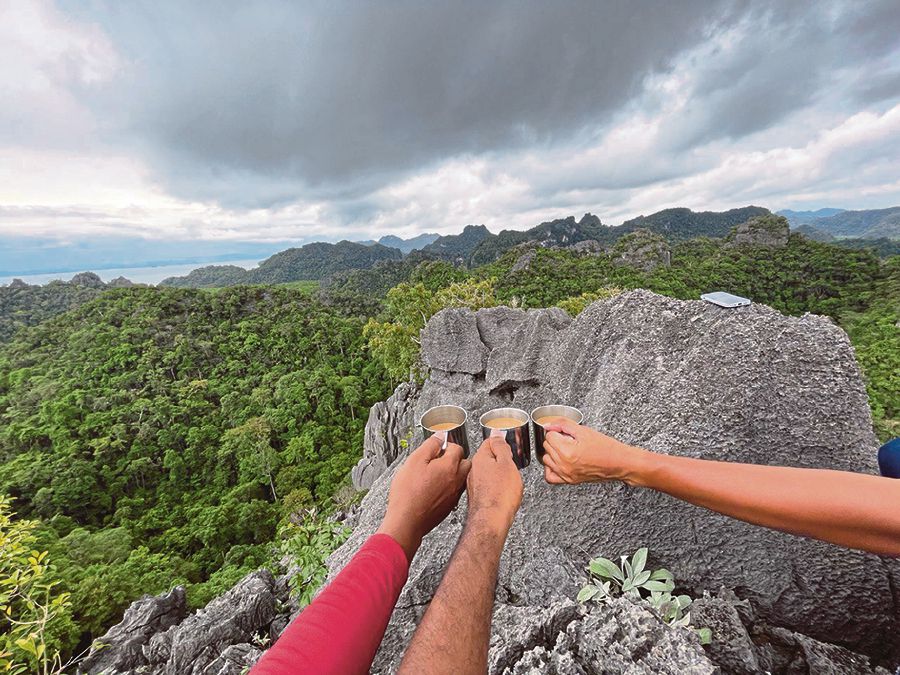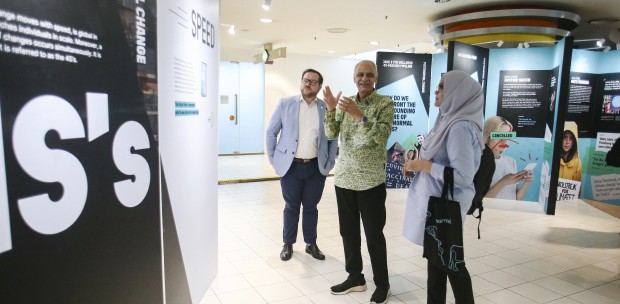ONE evening, I made a foolish decision of hanging out with my friends until the wee hours, feeling wild and energetic. The next day, I woke up with a sore lower back, a headache and had to sleep the entire day to recover while eating bowls of soup.
The thing about being in your 30s is that it can sometimes feel like a transition period.
There are parts of you which are as confident and exuberant as you were in your 20s, convinced that you could climb Mount Kinabalu with absolutely zero preparation, have fun in the city until midnight while still functioning at work the next day, or perhaps do spontaneous backflips on the trampoline without having to be rushed to the emergency room.
How about eating three plates of rice in one meal and not feeling bloated for the next 48 hours?
These were all possible in your 20s, but in your 30s, be prepared to suffer dire consequences for being nonchalant about what your body can handle.
More often than not, you can no longer be in large, loud crowds without getting a headache. Too much sugar will make you queasy and good luck trying to spend an entire day playing video games with only bags of chips as sustenance.
Our bodies change a lot once we leave our 20s. They can no longer endure prolonged damage with no repercussions.
GOING UNNOTICED
Unfortunately, most of us are hardly aware of this. We eat as badly as we did in our prime while hoping to not be affected by lifestyle-induced illnesses, do zero exercise thinking that our natural metabolism will do most of the work (research shows that our metabolism decreases significantly when we hit 30), and drown ourselves in so much work because we assume that we have the same stamina we had at 22.
That isn't to say we can no longer do all the fun things we like or work as hard as we could back then, but it means we have to start paying more attention to having a better balance between reckless behaviour and recovery.
In your 30s, you start seeing a real toll from the neglect of your health. Look around you, or perhaps look in the mirror — some of us have unfortunately entered the territory of being overweight or obese.
In my 20s, everyone seemed sprightly and sinewy, but these days I have friends who have been diagnosed with hypertension, gout and even diabetes despite only being in their early 30s.
It is also a fact that cancer patients are getting younger, no doubt fuelled by lifestyles saturated with terrible food, high stress, years of uncontrolled cigarettes, alcohol and total ignorance of caring for ourselves.
And as for resolutions to try to be healthier, many of us will only go as far as words of affirmation, with no real commitment to actual change.

A BETTER YOU
The new year is often associated with failed attempts at making resolutions to better ourselves, but why does it have to be this way?
It's a great opportunity to kickstart better habits and manifest an enthusiasm for a lifestyle change. Write down how you plan to upgrade your health and display the list where you can see it.
It sounds very old school but this method works. Tell your family and friends all about your health pledges — studies show that the more public your promises are, the higher the probability that you'll keep to them.
Here's to a hopefully brighter, better and healthier 2022 for all of us.




